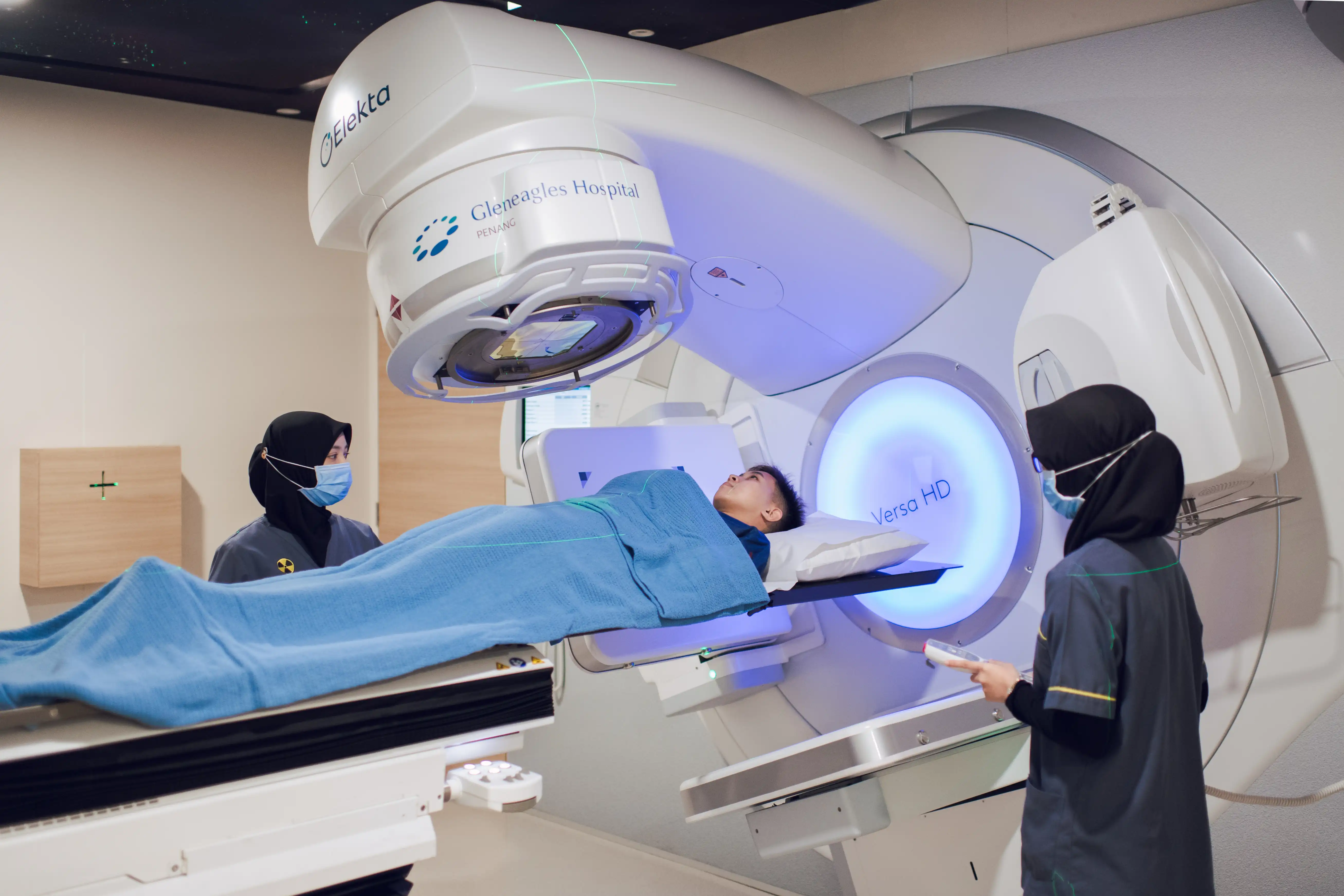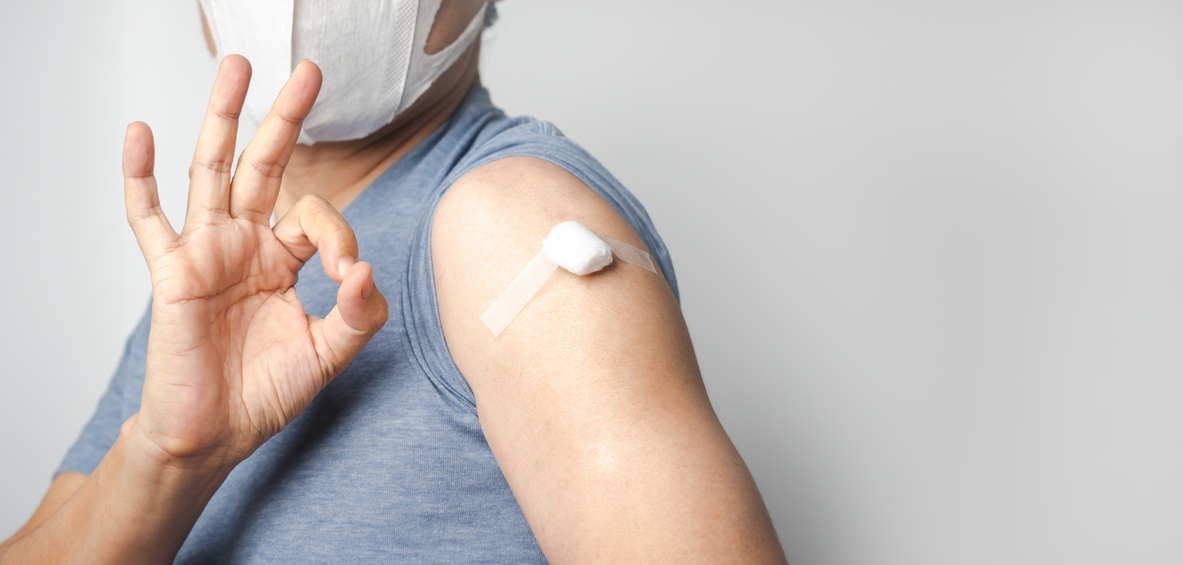Sexually active individuals are prone to acquiring genital herpes, a prevalent sexually transmitted disease (STD). STDs are infections that are transmitted through sexual contact. It can be caused by bacteria, viruses, or parasites.
About genital herpes
Genital herpes is a sexually transmitted disease caused by the herpes simplex virus. Herpes simplex virus (HSV) infection, also known as herpes, is common worldwide.
Most cases of genital herpes have no symptoms or are unrecognised, even though they may develop painful blisters or ulcers at the site of infection, ranging in severity. There are medications available to minimise the severity and frequency of symptoms;
however, they cannot cure the disease.
A diagnosis of genital herpes can be emotionally and psychologically stressful. It is essential to discuss with your healthcare professional on how to manage symptoms and prevent virus transmission.
Many people have recurring genital ulcers for several years following infection. Although the infection can remain in the body for years, episodes of symptoms may become less frequent with time. Medication and self-care techniques help control the infection.
Genital herpes causes
Genital herpes is an infection caused by the herpes simplex virus. There are two types of the virus called the herpes simplex virus type 1 and 2 (HSV-1 and HSV-2), and both of them can affect the genitals. Type 1 can also cause cold sores around the
mouth.
Genital herpes is most often caused by HSV-2. It results in painful blisters and ulcers in the genital area. Genital herpes produces painful blisters and ulcers around the genitalia. It can also potentially cause complications if detected for the
first time early or very late in pregnancy.
Infection occurs when the herpes virus passes through a break in the skin or penetrates the moist membranes of the penis, vagina, urinary opening, cervix, or anus. Once the skin is invaded, the virus starts infecting the cells.
Sores, blisters, and swelling are caused by the body’s natural defence system as white blood cells react to the infected cells. Although these sores (often called lesions) heal in a few days to a few weeks, some of the virus remains inactive
until it is triggered due to an infection, stress, or unknown reasons.
Herpes cannot be contracted through toilet seats, bed linens, or swimming pools. Also, you cannot contract the disease by touching objects like silverware, soap, or towels.
Genital herpes risk factors
Oral, vaginal, and anal sex are the most common modes of transmission for the herpes virus. Oral intercourse with an infected individual who has a cold sore on their lip can also cause transmission of genital herpes, which is often caused by HSV type
1. Even when there are no apparent ulcers, transmission from person to person is possible.
Other risk factors include:
- Sexual intercourse with an infected male compared to an infected female
- Multiple sexual partners
- Not using condoms
- Having a history of sexually transmitted infections
- Having sex at an early age
Genital herpes symptoms
Many individuals with genital herpes may not have any signs or symptoms. A minor case of herpes can develop a few lesions that are frequently misdiagnosed as acne or ingrown hairs. Because genital herpes usually produces no symptoms or relatively
minor symptoms, most people with genital herpes are unaware that they have it.
Initial episode
In the majority of cases, the initial herpes outbreak is the most severe, and females tend to experience more severe symptoms than males. Typically, the initial episode happens a few weeks following infection with the virus. In two to three weeks,
symptoms often resolve.
Symptoms include:
- Multiple blisters in the genital area that become painful ulcers
- Swollen lymph nodes in the groin
- Joint pain
- Headache
- Nausea or vomiting
- Fever
- Painful urination
In men, symptoms may appear in the following areas:
- Penis
- Scrotum
- Anus
- Buttocks
- Thighs
In women, symptoms may appear in the following areas:
- Vagina
- Vulva
- Buttocks
- Thighs
- Anus
Latent stage
During the latent stage, the virus lies dormant at the base of the spine. Symptoms are not present during this stage.
Recurrent episodes
Numerous individuals experience recurring episodes of genital herpes. However, the recurrent episodes are less severe than the initial stage of infection.
Up to 50 per cent of individuals with recurrent outbreaks exhibit symptoms prior to the development of ulcers, and these are known as prodromal symptoms. It includes itching, tingling, or discomfort in the buttocks, hips, or legs.
Genital herpes diagnosis
Diagnosis is made based on various investigations. Your doctor would first question your general health, symptoms and conduct a thorough physical examination.
It is important to differentiate between genital herpes and other sexually transmitted diseases, especially those that also cause genital ulcers, such as chancroid and syphilis.
- Polymerase chain reaction (PCR) test
- The PCR test is an exceptionally sensitive test for detecting the herpes virus in cells and secretions from the genital and urinary tracts.
- The PCR test has more sensitivity than the culture test.
- Culture test
- A culture test can determine the presence of the herpes simplex virus in ulcers and blisters.
- However, the culture is more likely to detect the virus when ulcers are open and new than ulcers that are healing and older.
- Blood test
- Blood tests can be done even though a person has no visible ulcers at the time of visit at the clinic but has a history of genital ulcers or may have been infected by HVS previously.
Genital herpes complications
Complications of genital herpes include:
- HIV
- The likelihood of HIV infection increases by approximately three-fold for those infected with HSV-2.
- Severe disease
- In immunocompromised individuals, such as those with advanced HIV infection, herpes can cause more severe symptoms and recurrences.
- Rare complications include meningoencephalitis (brain infection). Encephalitis (brain infection) or keratitis (eye infection).
- Neonatal herpes
- Although rare, a newborn can develop neonatal herpes if exposed to HSV during birth.
- When a mother contracts HSV for the first time in late pregnancy, the risk for newborn herpes is highest.
- If you have an active infection or prodromal symptoms at the time of delivery, your doctor may recommend a Caesarean delivery as it can reduce contact with the virus.
Genital herpes treatment
Although genital herpes cannot be cured, it can be managed with antiviral medication and self-care measures. If you have any of the symptoms mentioned above, speak to your doctor. When genital herpes is left untreated, the chances and severity of
recurrence are higher.
Antiviral medications such as acyclovir and famciclovir are used to reduce the severity and duration of symptoms while minimizing the risk of transmitting the virus. The dosage and length of treatment depend on whether it is the initial episode or
a recurrence.
On the other hand, self-care measures can relieve the pain of a herpes outbreak. Sitting in a few inches of warm water might temporarily relieve ulcer pain. This can be done in your bathtub or a specially designed "sitz bath". Women who have difficulty
urinating may find urinating in a sitz bath or at the end of a warm bath helpful. Avoid using bubble baths and soaps. Keep the genital area clean and dry and avoid wearing undergarments or clothes that are constricting or irritating.
Additionally, acetaminophen may be used to relieve pain associated with genital ulcers. It is not recommended to use over-the-counter lotions and ointments.
Genital herpes prevention
As all sexually active individuals are at risk of acquiring genital herpes, it is vital to communicate with your sexual partner prior to the first sexual encounter.
Here are some ways genital herpes can be prevented:
- Use latex condoms during sexual intercourse.
- Be in a mutually monogamous, long-term relationship with a partner who does not have herpes.
- Avoid sexual relationships with a partner who has herpes symptoms.
- Be supportive and discuss treatment plans with your partner. Ensure your partner takes antiviral medications as prescribed by the doctor.
Early detection of genital herpes makes treating the condition more effective with appropriate treatment. The caring and multidisciplinary team of healthcare professionals are available for consultation and to provide the best care.
Get in touch with us to book an appointment with gynaecologists at Gleneagles Hospitals today. We assure you the best possible care tailored
to your specific needs.
References
- Sexually transmitted infections, WHO. Available at: https://www.who.int/news-room/fact-sheets/detail/sexually-transmitted-infections-(stis)#:~:text=STIs%20have%20a%20profound%20impact,and%20trichomoniasis%20(156%20million) [Accessed on 25 October 2022]
- STD Facts - Genital Herpes, CDC. Available at: https://www.cdc.gov/std/herpes/stdfact-herpes.htm [Accessed on 25 October 2022]
- Genital Herpes. Available at: https://my.clevelandclinic.org/health/diseases/4248-genital-herpes-hsv-2 [Accessed on 25 October 2022]
- Sexually transmitted diseases. Available at: https://medlineplus.gov/sexuallytransmitteddiseases [Accessed on 26 October 2022]
- Genital Herpes- Symptoms and causes. Available at: https://www.mayoclinic.org/diseases-conditions/genital-herpes/symptoms-causes/syc-20356161 [Accessed on 26 October 2022]
- Diagnosis of genital herpes. Available at: https://www.winchesterhospital.org/health-library/article?id=103039 [Accessed on 25 October 2022]











-yeoh-chee-lima51b01d7-09b0-4e11-a0a5-ce3c9ea5de79.jpg?sfvrsn=615d491f_6)

